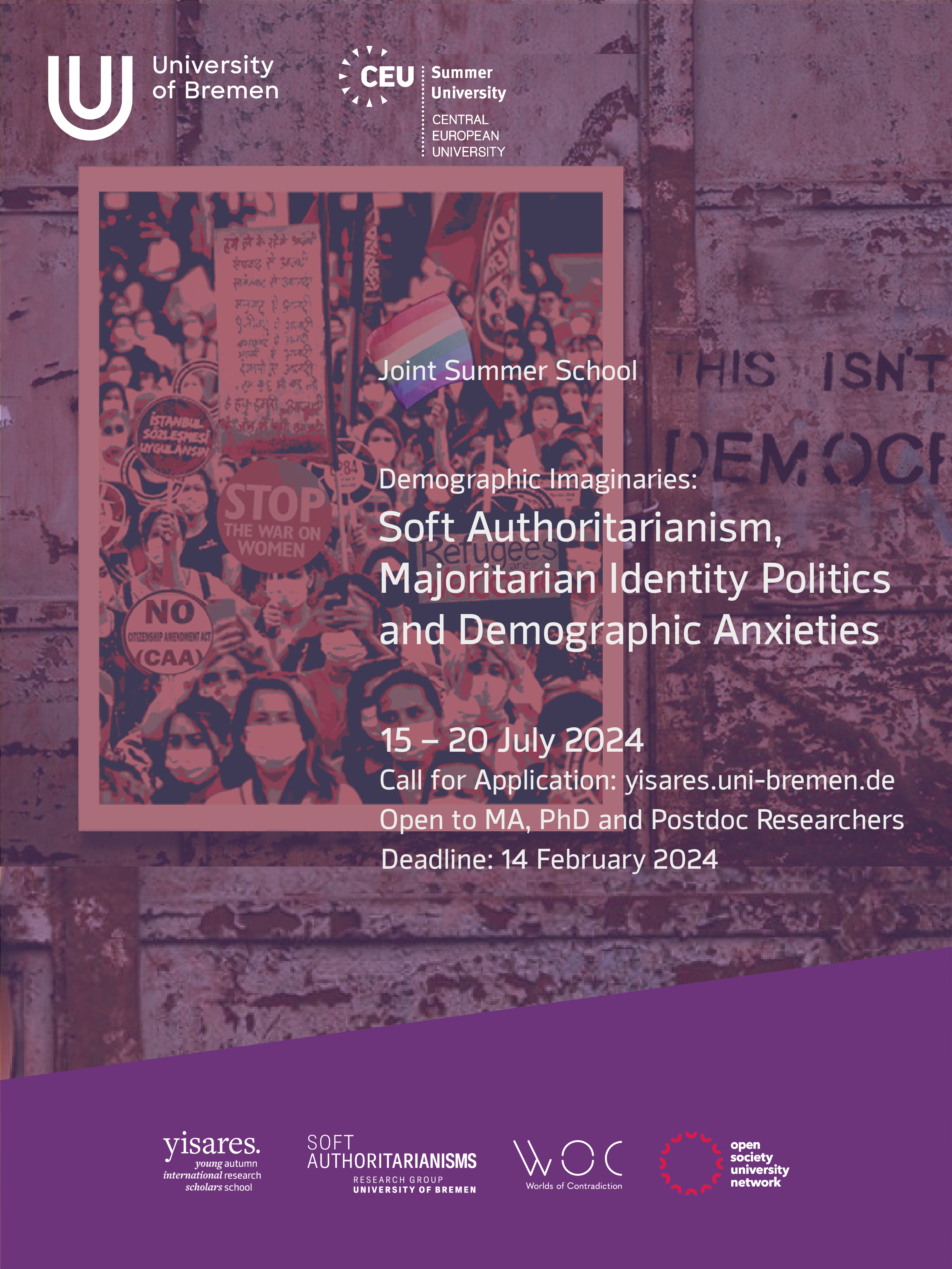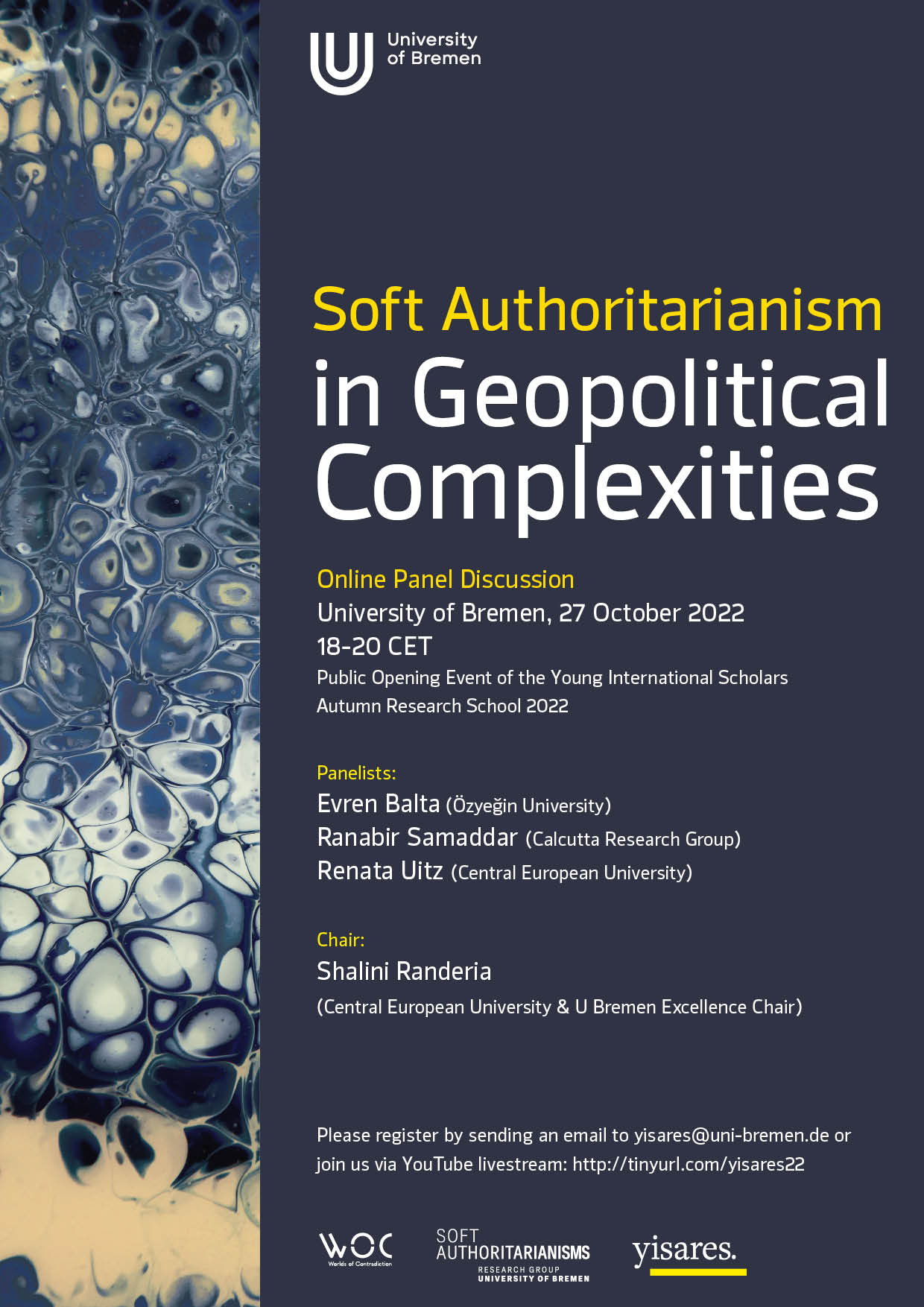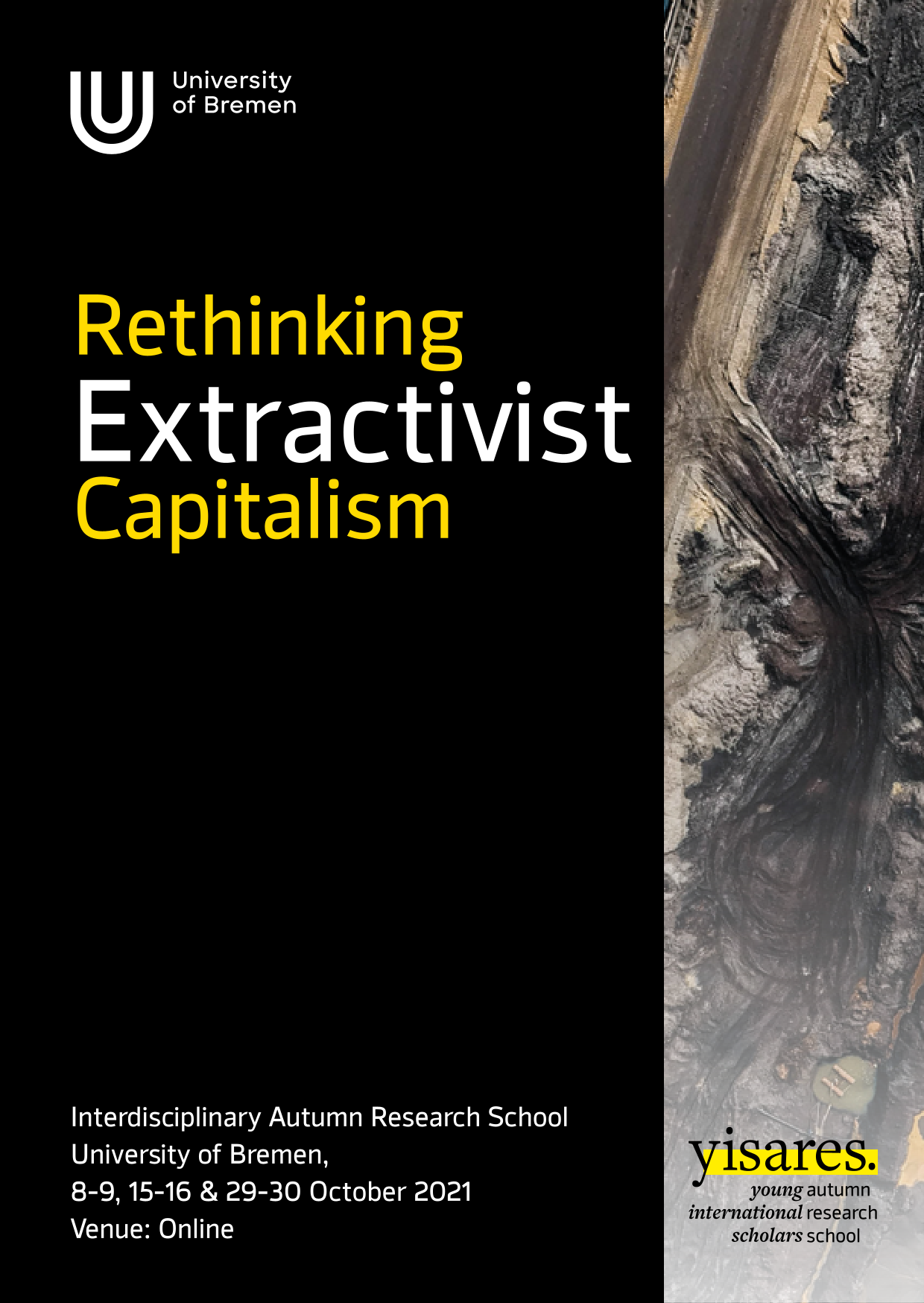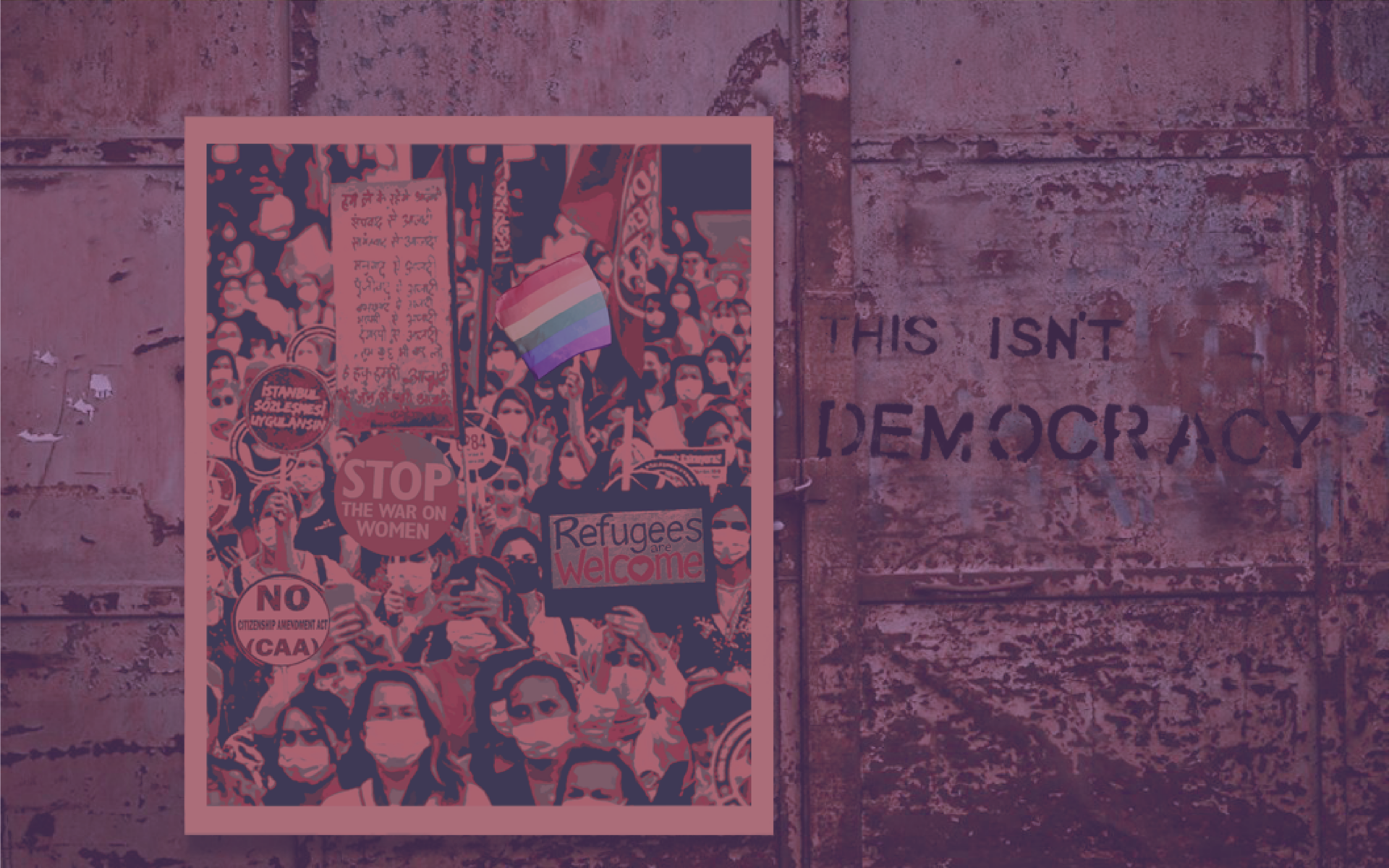2024: DEMOGRAPHIC IMAGINARIES: SOFT AUTHORITARIANISM, MAJORITARIAN IDENTITY POLITICS AND DEMOGRAPHIC ANXIETIES

The Topic
Conservative governments and far-right movements across different country contexts share a set of strikingly similar strategies that can be summed up as ‘demographic imaginaries.’ They facilitate a backlash against progressive reproductive and women’s rights, same-sex marriage, and LGBT+ communities, the use of coercive policies and rhetoric against religious, ethnic, and other minorities, or anti-immigration policies. Demographic anxieties are nurtured by conspiracy myths such as the narrative of the “great replacement,” just as much as by other forms of majoritarian identity politics which imagine the majority (be it: white, Christian and heterosexual, Hindu National, Turkish Sunni Muslim, or European etc.) as threatened by political, ethnic, religious, sexual and other minorities and their struggles for equal rights.
These demographic imaginaries are at the core of soft authoritarian attempts to reconstitute the body politic, transforming the population along ethnic and social lines to uphold the electoral majority. A wide range of tactics from gerrymandering to neo-Malthusian development policies and population control, anti-abortion legislation, anti- and pro-natalist discourses and policies, are used to secure power. By the inherently contradictory concept of soft authoritarianism, we mean to emphasize the specific ways in which democracies are currently being undermined from within. It describes a specific form of government that deliberately blurs the lines between democratic and authoritarian rule.
This Summer School will address the central role of these demographic imaginaries in facilitating soft authoritarian politics in different parts of the world. It aims to approach this topic from an interdisciplinary and globally comparative perspective. Looking into the specific political, juridical, cultural, technological, and discursive practices in the different country contexts, will problematize how these narratives and policies remain entangled with longstanding nationalist, racist, and sexist notions and colonial fantasies. It will examine how they are reframed today and the technological infrastructures and data-political presumptions they involve. The Summer School therefore has the overall goal of grasping the extent of these politics, their contradictions and effects, and the dangers that they entail for democratic and peaceful living together.
The summer School
The six-day Summer School offers participants an outstanding learning environment with an international faculty of renowned scholars in their respective fields. The intensive interdisciplinary program is composed of five thematic modules and a range of pedagogical formats including keynote lectures and panel discussions, interactive workshop sessions as well as an Academia-meets-Activism event. It also includes group sessions which give participants the opportunity to present and closely discuss their own research interests and projects in a supportive environment and receive feedback from their peers and faculty members. The program aims to enhance the participants’ critical engagement with a variety of cutting-edge approaches and fostering lasting collaborative international exchange among students and scholars from the Global South and North.
The Organizers
This Summer School is jointly organized by the Research Group “Soft Authoritarianisms” and the Collaborative Research Platform “Worlds of Contradictions” of the University of Bremen, the Central European University’s Summer University (CEU SUN) and the Research Training Group Contradiction Studies. It is funded by the Open Society University Network (OSUN), CEU SUN, and the University of Bremen.
Module 1: Demographic Anxieties & Soft Authoritarianism (I)
Lecture and Q&A : Shalini Randeria (CEU), Zsolt Enyedi (CEU)
Chair: Ulrike Flader (Bremen)
Module 1: Demographic Anxieties & Soft Authoritarianism (II)
Workshop & Discussion: Shalini Randeria (CEU), Zsolt Enyedi (CEU)
Chair: Ulrike Flader (Bremen)
Module 2: Discourses of De/Marginalization (I)
Panel and Q&A: Joachim Scharloth (Tokyo)
Chair: Hagen Steinhauer (Bremen)
Module 2: Discourses of De/Marginalization (II)
Workshop Discussion: Joachim Scharloth (Tokyo)
Chair: Hagen Steinhauer (Bremen)
Module 3: Gender Regimes & Anti-Liberal State (I)
Lecture and Q&A: Eva Fodor (CEU) & Seda Saluk (Michigan)
Module 3: Gender Regimes & Anti-Liberal State (II)
Workshop Discussion: Eva Fodor (CEU) & Seda Saluk (Michigan)
Field visit: to NGO’s/Activists in Budapest
Panel Event: “Academia meets Activism”
Panel Discussion
Module 4: Politics of Data and Infrastructures (I)
Lecture and Q&A:Payal Arora (Utrecht)
Chair: Nurhak Polat (Bremen)
Module 4: Politics of Data and Infrastructures (II)
Workshop & Discussion: Payal Arora (Utrecht)
Chair: Nurhak Polat (Bremen)
Module 5: Demographic imaginaries’ and imagining democracy (I)
Panel and Q&A: Mukulika Banerjee (LSE), Tyler Zoanni (Bremen)
Chair: Lipin Ram (Bremen)
Module 5: Demographic imaginaries’ and imagining democracy (II)
Workshop & Discussion: Mukulika Banerjee (LSE), Tyler Zoanni (Bremen)
Chair: Lipin Ram (Bremen)
Payal Arora Professor of Inclusive AI Cultures in the Department of Media Culture Studies at Utrecht University, Co-Founder, FemLab (Feminist Futures of Work)
Mukulika Banerjee Professor of Anthropology at the London School of Economics and Political Science
Zsolt Enyedi Professor at the Democracy Institute at CEU, Budapest
Ulrike Flader Senior Researcher in the RG Soft Authoritarianisms at the University of Bremen and Lecturer at the Department of Anthropology and Cultural Research
Eva Fodor Professor of Gender Studies at the Central European University
Nurhak Polat Associated Fellow of the RG Soft Authoritarianisms and Senior Researcher at the University of Bremen
Lipin Ram Postdoc Researcher in the RG Soft Authoritarianisms at the University of Bremen
Shalini Randeria Rector and President of the Central European University in Vienna and Professor of Social Anthropology and Sociology
Seda Saluk Assistant Professor of Women’s and Gender Studies at the University of Michigan
Joachim Scharloth Professor of German Sudies at Waseda University, Tokyo
Hagen Steinhauer Doctoral Researcher at the RG Soft Authoritarianisms at the University of Bremen
Ingo H. Warnke Professor of German and Interdisciplinary Linguistics at the University of Bremen
Tyler Zoanni Assistant Professor of Anthropology at the University of Bremen
2022: SITUATING SOFT AUTHORITARIANISM: BETWEEN GEOPOLITICAL COMPLEXITIES AND EVERYDAY PRACTICES

The Topic
The Russian government’s war against Ukraine has exposed multiple dimensions and geopolitical faultlines of contemporary authoritarianisms: The systematic hijacking of state institutions and accumulation of wealth through the extraction and capitalization of gas, oil and coal clearly stand out as indispensable preconditions for Russia’s neo-imperialism and military power. The invasion has been accompanied by the dissemination of state-steered lies, disinformation and ethno-nationalist narratives. The remnants of independent media and the political opposition are threatened by a subordinated judiciary. And on a global scale the acquiescence of China and India to Russia’s invasion indicates bolstered alliances between authoritarian and soft-authoritarian governments. Some pundits predict a geopolitical confrontation between an authoritarian block and seemingly re-consolidated “West”. The reluctance of many postcolonial states to support Ukraine facing this attack by its imperial neighbor contributes to currently emerging geopolitical complexities.
These dynamics pose new challenges for any critical engagement with contemporary forms of authoritarianism, which range from fully fledged authoritarian regimes to authoritarian practices within formal liberal democracies. War, securitization and anti-terrorism policies, suppression of movements against social inequalities and inhumane border regimes have time and again brought about violent policing or authoritarian legal and administrative measures also within liberal democracies. However, in past years, we have witnessed an increased dismantling of democracy from within. In a number of countries, such as Turkey, Poland, Hungary or India democratically elected politicians have managed to erode democratic principles, practices and institutions. They attack independent media and put immense effort into bringing courts under their political control. They meddle with constitutional law to impede procedures of accountability and dismantle fundamental human and citizens’ rights and freedoms, to inhibit effective political participation and a functioning opposition. Often these shifts are accompanied by discursive practices variably discrediting migrants, sexual or religious minorities and political opponents. Gradually but systematically the rules of the political game are changed to secure the power of authoritarian governments and leaders, while maintaining a democratic façade.
The Autumn School
During this autumn school we will take the emerging geopolitical complexities as entry point to explore and situate these forms of soft authoritarian government anew. We ask whether the current geopolitical situation impedes a further shift towards political rhetoric and interventions hollowing out democratic procedures and institutions. Or does it perhaps offer new opportunities for the tacit introduction of more authoritarian legislation, the mobilization of hate speech and the militarization of public life? What forms of transnational networks and relations of authoritarianisms can we observe?
In different thematic modules we will examine some of the legal, administrative, discursive and digital practices with which democracy is undermined in detail. We will look at how illiberal discourses are normalized, institutions hijacked, laws rewritten, and zones of exception created. We will ask in which way these practices and discourses really manage to cover up their authoritarian intentions and deceive their citizens? And, finally, we will explore the forms and scales of violence hereby engendered.
Throughout the whole autumn school, we will also revisit the different concepts that have been developed to examine the recent conjuncture of populist, anti-liberal and authoritarian trends inside nominal democracies. Do we still dispose of the right vocabulary to analytically dissect the contemporary moment? Or do we need to adjust our conceptual and methodological toolset to make sense of authoritarianism in exacerbated geopolitical complexities?
The Organizers
The Young International Scholars Autumn Research School is organized by the Research Group “Soft Authoritarianisms” at the U Bremen Excellence Chair Prof. Dr. Shalini Randeria, the U Bremen Research Project “Datenpolitiken und Autoritarismus: Digitale Verflechtungen und demokratische (Un-)-Möglichkeiten”, the Research Training Group “Contradiction Studies” and the Collaborative Research Platform “Worlds of Contradiction” (WoC) at the University of Bremen. It is funded by the University of Bremen and WoC.
Module 1
Keynote and Seminar: Flexibility as ‘Soft Authoritarian’ Technique
Soft authoritarian rule is characterized by a cunning way of combining democratic and authoritarian techniques of government. Elections are held, constitutions rewritten, inspection committees and reforms implemented, while power is centralized, media and opposition harassed, and the rule of law undermined. Often, these regimes are therefore regarded as in transition: either as not-yet democratic or in terms of democratic backsliding. But, what does it mean to understand these modes of soft authoritarian government in their own right, as modes of governing which flexibly combine authoritarian, illiberal and democratic legal and administrative practices? John Keane argues that these “new despotisms”, as he calls them, “strive to be flexible”. They have the skill to pragmatically adapt to and learn from crisis. This makes them particularly resilient and durable. Elaborating on different empirical cases, this module aims at taking a closer look at flexibility and adaptability as specific to these forms of government. It provides both an introduction to the key conceptual approaches and addresses the concrete practices of these “learning despotisms”, while also asking what they mean for envisaging change and opposition.
Speaker: John Keane (University of Sydney / WZB Berlin)
Chair: Ulrike Flader (University of Bremen)
Module 2
Panel Discussion: Soft Authoritarianism in Geopolitical Complexities
In this public opening event four panelists will reflect on the effects of Russia’s war against Ukraine on soft authoritarian governments and tendencies. On the one hand, they will address geopolitical consequences: In which way has the war shifted the strategic position of countries such as Turkey, India, Poland and Hungary? What new geopolitical alignments and alliances between soft authoritarian and authoritarian governments can be observed? And which critical insights can we gain by scrutinizing the discursive opposition between authoritarianism and democracy fiercely enforced by some Western actors from a postcolonial perspective? On the other hand, the panelists will exemplarily examine the domestic consequences of these geopolitical shifts: How does the war affect soft authoritarian agendas in Hungary, India or Turkey? Do the intensified geopolitical tensions offer new opportunities to push forward rightwing policies, the militarization of public life or the promotion of hate speech in political discourse? Or might new alignments and risks on the international level in some cases rather slow down the authoritarian transformation?
Panelists: Evren Balta (Özyeğin University), Ranabir Samaddar (Calcutta Research Group), Renata Uitz (Central European University)
Chair: Shalini Randeria (Central European University & U Bremen Excellence Chair)
Module 3
Roundtable and Seminar: Dissecting Violence in Soft Authoritarian Contexts
Violence has a somehow concealed presence in soft authoritarianism. In general, it is not a military coup or a full-scale revolution that mark the starting point of this form of governance. Soft authoritarian politicians win democratic elections instead, often with large majorities. Still, their policies and discursive strategies enact ‘dark’ political sentiments, the exposure and exclusion of ‘dangerous others’ and the militarization or securitization of public space. Violence is therefore not absent, but rather rendered invisible or laundered by the shift of discursive norms, the introduction of new legal framings or the extension of powers of state agencies. Above, violence is often directed to the margins of society: to migrants, ethnic or sexual minorities. The current counter-example of Russia as a full-scale authoritarian state deploying its military violence in an attack on its neighbor will be taken as an entry point to clarify and dissect the various faces and specific forms of violence in soft authoritarian contexts.
Speakers: Hayal Akarsu (Utrecht University), Kristóf Szombati (Humboldt University Berlin)
Chair: Jens Adam (University of Bremen)
Module 4
Keynote and Seminar: Discursive Practices of Soft Authoritarianism
In many democratic countries, soft authoritarian actors have mastered the art of manipulating the public discourse and even setting the government’s agenda by using discursive strategies and destructive rhetoric. Their toolbox includes various detrimental practices like spreading lies and misinformation, hate speech and ad-hominem attacks on the political opponent. The normalization of racist ideologies, vilification of emancipatory projects and reactionary responses to global and national challenges are part and parcel of the authoritarian backlash against liberal democratic rule. Successfully determining the topic and tone of public debate, soft authoritarian actors establish fruitful ground for growing mistrust in liberal elites and established political parties. Thus, they effectively exploit as well as further fuel a crisis of political representation. In this module, we will focus on the strategic use of language, political rhetoric and discursive practices in soft authoritarian attacks on public discourse and their corrosive effect on democratic legitimacy. In this module, we will focus on the strategic use of language, political rhetoric and discursive practices in soft authoritarian attacks on public discourse and their corrosive effect on democratic legitimacy.
Speaker: Éric Fassin (Université Paris VIII Vincennes – Saint-Denis)
Chair: Hagen Steinhauer
Module 5
Keynote and Seminar: Exploring Digital Power in Soft Authoritarianism
In digital times, we are facing emerging challenges and urgencies in political and everyday lifeworlds. These include growing digital power in/as soft-authoritarian modes that contribute in different ways to the ongoing undermining of democracies. Both in Europe and in various countries around the world, authoritarian governments and actors draw on a plethora of digital technologies, spaces, and practices. They strive for more flexibility and durability in their social, informational, infrastructural and geopolitical power, while reconfiguring the digitally mediated infrastructures, relations and practices of the political. In this module, we will focus on the digitally enabled and expanded modes and data politics of soft authoritarianism(s). How are sophisticated digital tools and spaces employed as a means of manipulating democratic cultures and structures? In what ways do these tools and spaces give governments a soft hand for covering up authoritarian continuities and scaling up targeted injustices and violence digitally and/or algorithmically? What are the emerging data politics and strategies for counterdata politics in soft authoritarian contexts? We will also discuss fluid transitions between authoritarian, illiberal, and liberal democratic politics with data, and their non-soft and dark consequences for and within the interrelated digital worlds and possible democratic futures.
Speakers: Darren Byler (Simon Fraser University), Seraphine F. Maerz (Goethe University Frankfurt), Svitlana Matviyenko (Simon Fraser University), Yatun Sastramidjaja (University of Amsterdam)
Chair: Nurhak Polat
Dr. Jens Adam
Dr. Hayal Akarsu
Prof. Evren Balta
Dr. Darren Byler
Prof. Éric Fassin
Dr. Ulrike Flader
Prof. John Keane
Dr. Seraphine F. Maerz
Dr. Svitlana Matviyenko
Dr. Nurhak Polat
Prof. Dr. Shalini Randeria
Dr. Ranabir Samaddar
Dr. Yatun Sastramidjaja
Hagen Steinhauer
Dr. Kristóf Szombati
Prof. Dr. Renáta Uitz
1. Prof. John Keane – Flexibility as Soft Authoritarian Technique
2. Panel Discussion – Soft Authoritarianism in Geopolitical Complexities
3. Prof. Dr. Éric Fassin – Discursive Practices of Soft Authoritarianism
2021: RETHINKING EXTRACTIVIST CAPITALISM

The topic
Extractivism – traditionally understood as the over-exploitation of natural resources – has led to irreversible environmental damage and the destruction of livelihoods across the globe. While these forms of primitive accumulation have historically been key to colonial exploitation of the Global South, we are currently witnessing an expansion of multiple forms of extractivism. Reimagined as a developmental and even emancipatory strategy, extractivism has increasingly been implemented by states, private firms, local and traditional authorities, and networks of experts in order to capture and distribute high rents, while in fact deepening legacies of colonial dependencies. However, extractivism has also extended beyond the plundering of raw materials to cultural or non-material resources, e.g. in the form of extensive tourism, or “data-mining”. Hence, today, extractivism has come to signify a global logic of current capitalist accumulation and valorisation which differs decisively from industrial capitalism. To secure the appropriation of rent, these different forms of extractivism are flanked by various violent and authoritarian state practices, often reinstating racist and (settler) colonial orders, erasing indigenous claims to land, large-scale dispossession and displacement, severe human rights violations, unsafe labour conditions, surveillance, and forced migration.
The Autumn School
This six-day interdisciplinary Autumn Research School aims at mapping the different forms of extractivist capitalism across transnational spaces and emerging relational geographies including current developments in finance, logistics and digital economies. Such a mapping requires a “retooling” of theories, analytical frameworks, and methodologies that help us engage with the multiple contradictions of this particular logic of capitalism – in particular to rethink the Global South into this logic. To do so, the Autumn School will address the political economy of extractivist accumulation, its ecological and social implications, the attendant transformations of (post-)colonial knowledge, juridical and political re-orderings and authoritarian tendencies, discursive and cultural practices of legitimation, and ultimately questions of dissent, protest and resistance. The Autumn School offers participants an outstanding programme with faculty members including Deval Desai, Michael Flitner, Michi Knecht, Sandro Mezzadra, Martin Nonhoff, Shalini Randeria, Ranabir Samaddar, Klaus Schlichte, Ingo H. Warnke and Ruth Wodak. It is composed of six content modules, plus a hands-on research design workshop module and includes lectures, Q&A‑sessions, interactive small-group roundtable sessions, micro-group sessions, and plenary debate.
The organizers
The Young International Scholars Autumn Research School is organized by University Bremen Excellence Chair Prof. Dr. Shalini Randeria, Research Group “Soft Authoritarianisms”, Worlds of Contradictions (WoC) and funded by the University of Bremen and WoC.
Module 1
Mapping Extractivism:
Political Economy of Extractivist Capitalism
This module provides an introduction into the key aspects of extractivism as a current mode of capitalism thus offering a solid theoretical basis for the Autumn School. It discusses the role of primitive accumulation in the history of capitalism, its re-emergence and its relation to finance and industrial capital. Elaborating on different empirical cases, it addresses the specific conditions and constellations, the dimensions of rent appropriation, the actors involved, supply chains in question as well as steering, regulation and taxation by the state. It also discusses the limits of extractivism as a developmental strategy.
Responsible Lecturers: Prof. Dr. Sandro Mezzadra and Dr. Jens Adam
Module 2
Colonial Legacies
Historically, primitive accumulation has been intrinsically linked to the colonial project. Contemporary capitalism reveals continuities of this colonial logic with respect to extractivism, but also discontinuities in new forms of surveillance capitalism. Based on specific case studies, this module asks how relational geographies currently emerging are in fact transforming older colonial patterns into new global configurations. This module opens up novel ways of looking at capitalism by shifting the Global South to the centre of analysis.
Responsible Lecturers: Prof. Dr. Ranabir Samaddar, Prof. Dr. Shalini Randeria, Dr. Ulrike Flader
Module 3
Emerging Post-colonial Knowledge Spaces: Epistemic Practices and Political Struggles
Extractivisms – always simultaneously local and planetary in scope – generate different forms of knowledge both by scientists and local populations, but also severe, often violent struggles of appropriation and resistance. This module is interested in understanding and realigning different knowledge practices as they are conducted, related and lived by activists, academics and various local populations. The module addresses questions of protest, resistance and counter-practices towards specific forms of extractivism by working with case studies from India, Papua New Guinea and Germany. Collaboratively facilitated with activists and anthropologists who are involved in protests against deep sea mining, deforestation and coal mining this module provides another avenue to decolonize certain ways of thinking today’s forms of capitalism. It highlights the contradictions, the social, cultural and epistemic implications of extractivist accumulation as well as the strategies and visions of activists and academics in their struggles against extractivism.
Responsible Lecturers: Dr. Deval Desai and Dr. Hannah Franzki
Module 4
Land and Food
This module addresses the crucial issue of increased pressure on land holding stemming from ever more globalized agricultural markets. How are global market dynamics and local food production related? What do colonial heritages have to do with current demand for land and cases of land-grabbing? We will look at global tendencies and local constellations on the countryside at the same time.
Responsible Lecturers: Dr. Martin Reisigl and Prof. Dr. Ruth Wodak
Module 5
Juridical & Political Reorderings: Modes of Governing Extractivist Economies
The aim of this fifth module is to analyse the political and legal transformations linked to the increase in extractivism in certain countries. It discusses what kind of juridical re-orderings are undertaken on the level of access and property rights in order to make land available to exploitation through transnational and local companies. It addresses the human rights violations, forced displacement and dispossessions as well as unsafe labour conditions, also asking how legal regulations reinstate colonial orders and racist logics. It discusses the political conditions and changes, the repression towards opposition and dissent, as well as the politics of securitization, engaging with the questions: does extractivism necessarily entail authoritarian modes of government? How “softly” can these forms of authoritarianism be implemented using the law?
Responsible Lecturers: Prof. Dr. Michi Knecht, Prof. Dr. Stuart Kirsch (tbc), Alan Robert Robson and members of environmental NGOs in PNG and Germany
Module 6
Discursive Practices of Legitimization
Extractivism as a dominant paradigm of capitalism today and the legal and political transformations that it triggers are embedded in a variety of discourses. These can range from regional narratives on the right to exploit the land to national myths erasing existing histories or even broader discourses on individualism and private property which all serve to legitimize and normalize the measures. This module engages with examples of such discourses, the knowledges they (re-)produce and the practices they entail.
Responsible Lecturers: Prof. Dr. Klaus Schlichte, Alex Nadège Ouedraogo and Anna Wolkenhauer
Module 7
Research Design & Proposal Writing Workshop
This module is designed as a hands-on workshop to promote skills in conceptualizing and designing research and writing proposals accordingly. It specifically aims at MA-participants or those at the beginning of the PhDs, who would like to improve their research design, and will be useful for academics at all stages. The workshop will be run in cooperation with members of the department for doctoral and postdoctoral support BYRD, University of Bremen.
Responsible Lecturers: Jörn Weinhold
Dr. Jens Adam
Dr. Deval Desai
Dr. Ulrike Flader
Dr. Hannah Franzki
Prof. Dr. Michi Knecht
Prof. Dr. Sandro Mezzadra
Alex Nadège Ouedraogo
Prof. Dr. Shalini Randeria
Dr. Martin Reisigl
Alan Robson
Dr. Ranabir Samaddar
Prof. Dr. Klaus Schlichte
Hagen Steinhauer
Prof. Dr. Ingo H. Warnke
Prof. Dr. Ruth Wodak
Anna Wolkenhauer
1. Prof. Sandro Mezzadra – Political Economy of Extractivist Capitalism
2. Prof. Ranabir Samaddar – Colonial Legacies
3. Dr. Martin Reisigl & Prof.Dr. Ruth Wodak – Crisis & Climate: Discursives Perspectives
4. Modul 6 – Land and Food


